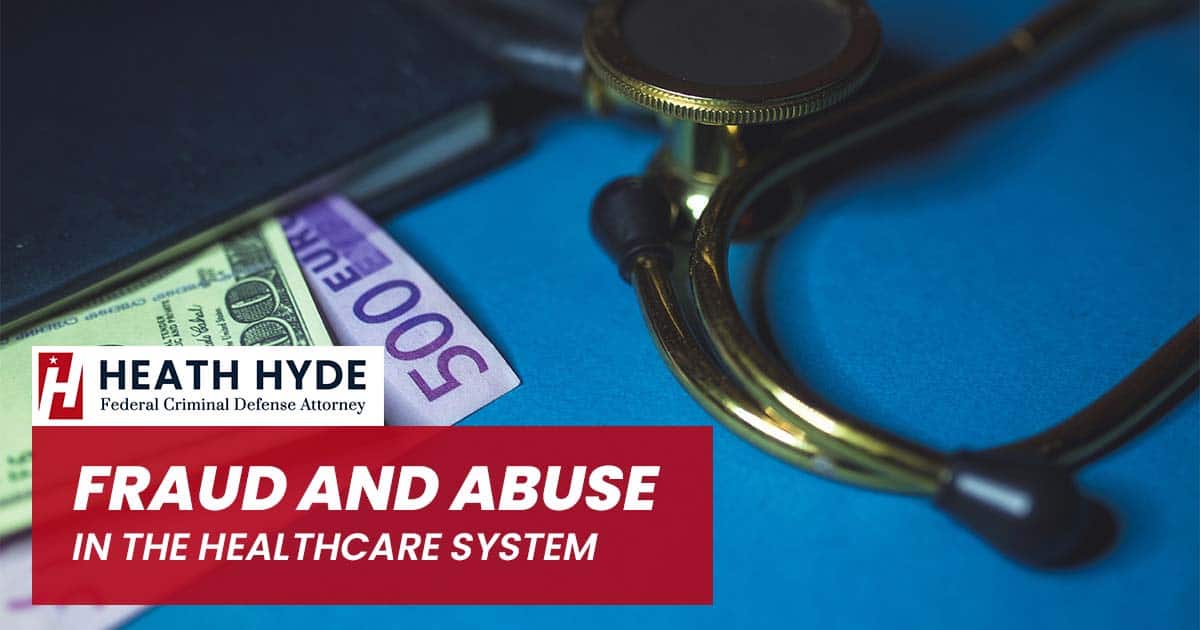Fraud is the deliberate misleading of a victim in order to obtain an unfair or unlawful advantage or to deprive a victim of a legal right. Annually, it is estimated that over $60 billion is lost due to healthcare fraud and abuse. JHHC is committed to safeguarding the quality of care provided to its members, as well as the federal and state programs it manages.
The Special Investigations Unit (SIU) is tasked with detecting and preventing fraud. Members of this team are exceptionally qualified for this task because they have decades of experience in fraud investigations. We’re inviting you to join us in the battle against fraud by taking an active role.
The following are some forms of healthcare fraud that you should be aware of and report:
- Misrepresentation of the service kind or level supplied;
- Misrepresentation of a certain rendering service;
- Billing for things and services that were not provided;
- Charging for services that aren’t adequately documented;
- Billing for non-medically required items and services;
- Seeking payment or reimbursement for operations that are integral to other procedures performed on the same day (unbundling);
- Trying to get more money or reimbursement for services that should be billed at a lesser rate (up-coding).
Abuse is described as financial, business, or medical practices that result in unnecessary costs or payment for services that are not medically essential or fail to fulfill professionally acknowledged healthcare standards.
- Using codes incorrectly on a claim;
- Excessive charges for services or materials; and
- Billing for non-medically essential services.
Fraud and abuse can result in criminal and civil responsibility for a service or vendor.
How can I assist in the prevention of fraud and abuse?
- Verify all member ID cards before providing service;
- When submitting bills or claims for services done, ensure accuracy.
- Complete the necessary Referral and Treatment paperwork;
- Avoid needless medication and/or medical care.
- Report prescription pads that have been lost or stolen, as well as fake prescriptions; and
Medical Malpractice
Healthcare fraud does not have any victims. It affects everyone, both individuals and corporations, and results in annual losses of tens of billions of dollars. It has the potential to increase health insurance costs, expose you to unneeded medical treatments, and tax you more.
Medical practitioners, patients, and others who manipulate the healthcare system to get illegal benefits or payments are all guilty of healthcare fraud.
For both federal and private insurance programs, the FBI is the primary agency for investigating health care fraud.
These offenses are investigated by the FBI in collaboration with:
- Agencies at the federal, state, and local levels
- Partnership for Healthcare Fraud Prevention
- The National Health Care Anti-Fraud Association, the National Insurance Crime Bureau, and insurance investigative units are all examples of insurance organizations.
Healthcare Fraud Prevention Tips
Keep your health-insurance information safe. Consider it a credit card. Don’t give it to anybody else to use, and use it with caution at the doctor’s office or pharmacy.
Be cautious of “free” services. If you’re requested to supply your health insurance information for a “free” service, it’s probably not free, and your insurance company could be billed falsely.
Regularly review your explanation of benefits (EOB). Check that the dates, places, and services billed correspond to what you received. Contact your health insurance provider if you have any concerns.
Healthcare Fraud: Common Types
Medical Providers committing Fraud
- Multiple claims for the same service are referred to as double billing.
- Phantom billing is when a patient is charged for a service visit or goods that they never got.
- Unbundling is the process of sending numerous bills for the same service.
- Billing for a more expensive service than the patient actually received is known as upcoding.
Patients and other individuals commit fraud
- Convincing someone to supply their health insurance identification number and other personal information in order to bill for non-rendered treatments, steal their identity, or enroll them in a bogus benefit plan.
- Using or permitting another person to use your health insurance is an example of identity theft/identity swapping.
- Providing or invoicing for health services or equipment without a license is considered impersonating a health care provider.
Prescription-related Fraud
- Creating or using falsified prescriptions is considered forgery.
- Diversion: Taking legal prescriptions and using them for unlawful purposes, such as selling them.
- Visiting numerous doctors for controlled substance prescriptions or getting prescriptions from medical offices that participate in unethical practices is known as doctor shopping.
Abuse of Prescription Drugs
Creating or utilizing falsified prescriptions is illegal, and prescription fraud costs doctors, hospitals, insurers, and taxpayers a lot of money. The greatest cost, however, is human life—addiction claims the lives of tens of thousands of people every year.
Protect Yourself From Healthcare Fraud and Abuse
Follow this advice to protect yourself and your loved ones:
- If you’re on opioids, follow your doctor’s instructions to the letter, ideally for as little time as possible.
- Never give your medication to anyone else.
- Consult your doctor about non-opioid alternatives.
- The CDC has more information about the dangers of opioid usage.
- If you have any unused or expired pain drugs, you can dispose of them at a DEA-approved take return station.






